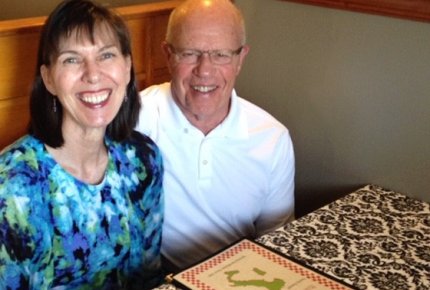How enhanced tax credits make cancer care affordable for patients like Ali
For over 20 years, Ali spent much of her time caring for others as a nurse and a single mother of two.
Gail Orcutt, a retired teacher and ACS CAN volunteer from Iowa, had a nagging cough that wouldn’t go away when she went to see her doctor in 2010. Her doctor ordered an x-ray and, a day before her 57th birthday, Gail was diagnosed with lung cancer caused by her exposure to radon. 
Many years and many rounds of chemotherapy and surgery later, Gail was declared cancer-free. But, the cancer has since returned twice, and Gail is currently being treated with oral cancer drugs to target the cancer in her lymph nodes and lower back.
Gail is on Medicare and uses it to help pay for the drugs she needs to keep her cancer at bay. Fortunately, the Medicare Part D prescription drug plan that Gail relies on is required to cover virtually all drug therapies for six protected classes of diseases, including cancer.
But, this could change. The Health and Human Services Department (HHS) is considering changes to the Medicare Part D prescription drug plan, and if finalized, those changes could have devastating consequences for cancer patients on Medicare.
Gail is joining volunteers from ACS CAN and other patient and provider groups this week in Washington, DC to meet with their members of Congress. The volunteers will share their stories and ask their members of Congress to reach out to HHS Secretary Alex Azar to share their concerns about the pending Medicare proposal and to ask him to stop the proposed changes that could negatively harm patients.
These changes could:
Under the proposed policy change, the drug plan could limit patients’ access to certain drugs that they need and require patients to try less expensive drugs first, even if their doctor doesn’t feel that is the best course of treatment.
“I shudder to think that this proposed rule change would put up roadblocks to my best chances of a long survival by allowing someone who doesn't understand how individual cancer treatment really works to interfere with my treatment,” said Gail.
“My physicians know best how to treat me. Cancer requires specialized treatments and for some cancer drugs there aren’t many alternatives.”